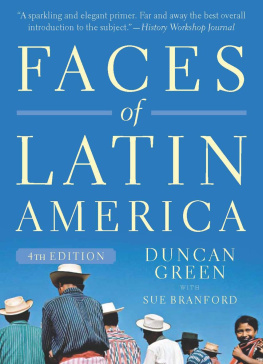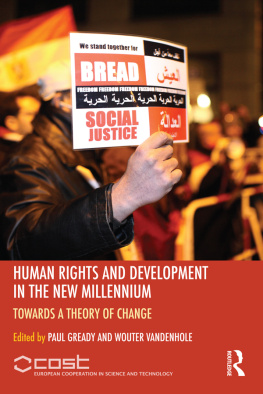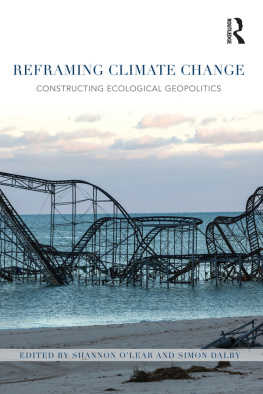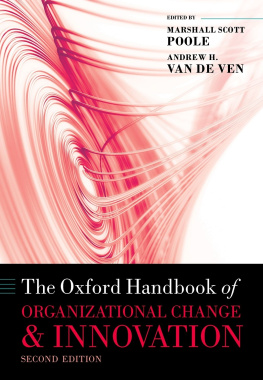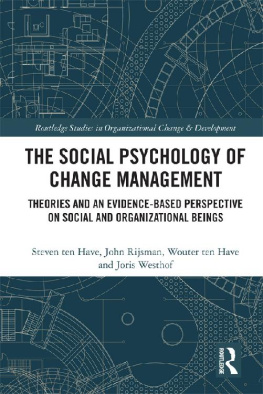In this powerfully argued book, Duncan Green shows how we can make major changes in our unequal and unjust world by concerted action, taking full note of the economic and social mechanisms, including established institutions, that sustain the existing order. If self-confidence is important for the effective agency of deprived communities, so is a reasoned understanding of the difficult barriers that must be faced and overcome. This is a splendid treatise on how to change the actual worldin reality, not just in our dreams.
Amartya Sen, Thomas W. Lamont University Professor, and Professor of Economics and Philosophy, Harvard University
In How Change Happens, Duncan Green points to a simple truth: that positive social change requires power, and hence attention on the part of reformers to politics and the institutions within which power is exercised. It is an indispensable guide for activists and change-makers everywhere.
Francis Fukuyama, Olivier Nomellini Senior Fellow at the Freeman Spogli Institute for International Studies (FSI), and the Mosbacher Director of FSIs Center on Democracy, Development, and the Rule of Law, Stanford University
It was George Orwell who wrote that The best books are those that tell you what you know already. Well in Duncans book How Change Happens I have found something better: A book that made me think differently about something I have been doing for my entire life. He has captured so much in these pages, drawing on global and national and local change and examples from past and present. But what makes this book so insightful is that at all times we are able to see the world through Duncans watchful eyes: From his time as a backpacker in South America to lobbying the WTO in Seattle and his many years with Oxfam, this is someone who has always been watching and always been reflecting. It is this gift that will most help Duncans readerswhether they be students or those who think they have seen it all. There is always more to notice about such a complex, changing world. And the more we can see, the better we will be at making change happen.
Winnie Byanyima, Executive Director, Oxfam International
Once again, following From Poverty to Power, Duncan has given us a remarkable tour de force, wide-ranging, readable, combining theory and practice, and drawing on his extensive reading and rich and varied experience. How Change Happens is a wonderful gift to all development professionals and citizens who want to make our world a better place. It confronts contemporary complexity, systems, power, and wealth and builds on an extraordinarily rich treasury of experience and evidence to give us a new, grounded realism for development practice. Only after reading and reflecting have I been able to see how badly we have needed this book. It does more than fill a gap. The evidence, examples, analysis, insights, and ideas for action are a quiet but compelling call for reflection on errors and omissions in ones own mindset and practice. Here then we have vital reading for all development professionals, practitioners, and activists, and all concerned citizens. It is as relevant and important for South as North, for funders as activists, for governments as NGOs, for transnational corporations as campaigning citizens. We are all in this together. How Change Happens should stand the test of time. It is a landmark, a must read book to return to again and again to inform and inspire reflection and action. I know no other book like it.
Robert Chambers, Research Associate, Institute of Development Studies
This is a gem of a book. Lucidly written and disarmingly frank, it distils the authors decades of experience in global development practice to share what can work and what may not, in changing power relations and complex systems. Again and again I found myself agreeing with him. All of uspractitioners and academicswho want a better world, and are willing to work for it, must read this book.
Bina Agarwal, Professor of Development Economics and Environment, Global Development Institute, University of Manchester
This fascinating book should be on the bedside of any activistand many others besides. Duncan Green is the rare global activist who can explain in clear yet analytical language what it takes to make change happen. Ranging widely from Lake Titicaca in Peru to rural Tajikistan, from shanty towns to the halls of power, this is a book sprinkled with wisdom and insight on every page.
Dani Rodrik, Ford Foundation Professor of International Political Economy, John F. Kennedy School of Government, Harvard University
How Change Happens is a positive guide to activists. It is one of the most helpful, hopeful and thoughtful manual on the process of transformation. It is an optimistic book; to be an activist you need to be an optimist! When one feels despondent and disheartened then reading this book will help to encourage, energise, and inspire one to participate in the creation of a better world. Duncan Green makes the case with vivid examples that significant changes have taken place and continue to take place when social and environmental activists employ skilful means and multiple strategies such as advocacy, campaigning, organising, and building movements. It is a wonderful book. Read it and be enthused to join in the journey of change.
Satish Kumar, Founder of Schumacher College and Editor Emeritus, Resurgence & Ecologist
The world committed to global transformative change in 2015, with the 2030 Agenda and targets in the Paris Climate Agreement to stay well below 2C and achieve carbon neutrality by the second half of the century. We need to understand how change happens in order to accelerate our pathway to a safe future. Duncan Greens book is a timely and badly needed guide to bringing about the necessary social and political change.
Mary Robinson, Chair of the Institutefor Human Rights and Business
How Change Happens
Duncan Green
How Change Happens





Great Clarendon Street, Oxford, OX2 6DP, United Kingdom
Oxford University Press is a department of the University of Oxford. It furthers the Universitys objective of excellence in research, scholarship, and education by publishing worldwide. Oxford is a registered trade mark of Oxford University Press in the UK and in certain other countries
Oxfam GB 2016
The moral rights of the author have been asserted
First Edition published in 2016
Impression: 1
Some rights reserved. No part of this publication may be reproduced, stored in a retrieval system, or transmitted, in any form or by any means, electronic, mechanical or photocopying, recording or otherwise, for commercial purposes without the prior permission in writing of Oxford University Press

This is an open access publication, available online and distributed under the terms of a Creative Commons Attribution-Non Commercial-No Derivatives 4.0 International licence (CC BY-NC-ND), a copy of which is available at http://creativecommons.org/licenses/by-nc-nd/4.0/. Enquiries concerning use outside the scope of the licence terms should be sent to the Rights Department, Oxford University Press, at the above address


